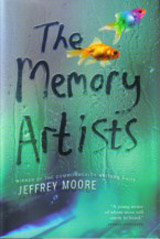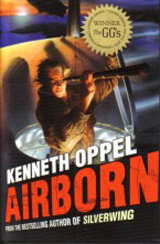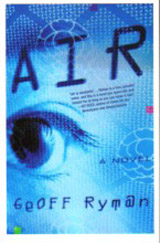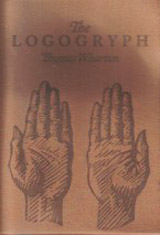From the book jacket: "For generations, the Erlings of Vinmark have taken their dragon-prowed ships across the seas, leaving fire and death behind. But times can change, even in the North, and in this tale wrought of violence, beauty, and supernatural presences in the half-world forests and nights, men and women of three cultures find the threads of their lives unexpectedly brought together...” Guy Gavriel Kay is the author of eight previous novels: The Summer Tree, The Wandering Fire, and The Darkest Road (which comprise the Fionavar Tapestry); Tigana; A Song for Arbonne; The Lions of Al-Rassan; and Sailing to Sarantium and Lord of Emperors (which comprise the Sarantine Mosaic). He is also the author of the acclaimed collection of poetry Beyond This Dark House. His work has been translated into 21 languages. He has twice won the Aurora Award, is a three-time World Fantasy Award nominee, and is the recipient of the International Goliardos Award for his contributions to the literature of the fantastic. He lives in Toronto. The Sunburst jury says: "A powerful homage to northern themes, The Last Light of the Sun is an epic saga set in an alternate Britain in which the Fairies preside over the weaving of a magnificent but bloodstained tapestry by Vikings, Celts and Anglo-Saxons. Perhaps only a master fantasist such as Kay could have captured so forcefully the vitality and brutality of life in the Dark Ages." 
From the book jacket: "Noel Burun is a hypermnesia synaesthete: his memory is unrelentingly exact, and when people speak he sees their words as vibrant explosions of colour, often leaving him befuddled and bewildered. His mother, Stella, on the other hand, is slowly sinking into the quicksand of Alzheimer's. A man who remembers too much and a woman who remembers too little—both struggle to make sense of their worlds in a house bloated with memories.... "Born in Montreal, Jeffrey Moore was educated at the University of Toronto and the Sorbonne. He works as a translator and also lectures at the University of Montreal. He was awarded the Commonwealth Writers Prize for his first novel, Prisoner in a Red-Rose Chain, which has been optioned by Valkyrie Films. The Sunburst jury says: "In this surprising and intriguing novel, a group of characters on a quest for a memory pill excavate their own pacts with the past. Presided over by a ghost-writer who combines diary entries, lab notes, and interviews with ‘dramatic reconstructions,’ The Memory Artists is a brilliant collation of the multiple faces of loss and retention in the aesthetic kingdom of memory. Author Jeffrey Moore explores memory as fabulous torture, blessing and curse, muse and mirage, logos and discovery." 
From the book jacket: "Matt Cruse is the cabin boy of the Aurora, the 900-foot luxury airship he has called home for the past two years. While crossing the Pacificus, Matt fearlessly rescues the unconscious pilot of a crippled hot-air balloon. Before he dies, the balloonist tells him about the fantastic, impossible creatures he has seen flying through the clouds. Matt dismisses the story as the ravings of a dying man, but when Kate de Vries arrives on the Aurora a year later, determined to prove the story is true, Matt finds himself caught up in her quest. Then one night, over the middle of the ocean, deadly air pirates board the Aurora. Far from any hope of rescue, Kate and Matt are flung into adventures beyond all imagining.... "Kenneth Oppel is the author of Silverwing, Sunwing, and Firewing, which have sold over 900,000 copies worldwide and have won numerous awards, including the Mr. Christie's Book Award, the CLA book of the Year for Child Award and the Ruth Schwartz Award, as well as a host of children's choice awards across the country. His other titles include Dead Water Zone, The Live-Forever Machine, and the Barnes and the Brains series. Kenneth Oppel lives in Toronto with his wife and their two children." The Sunburst jury says: "In an alternate Victorian world, Matt Cruse serves as a cabin boy on the luxury airship Aurora. He is on watch when a tattered hot-air balloon crosses the ship's path. Matt rescues its dying passenger through nimble acrobatics. In the adventurer's notebook are drawings of half-bat, half-panther creatures. Do they exist or are they the fevered imaginings of a dying scientist? In Airborn, Kenneth Oppel brings together all of the pieces for an astonishing adventure: dirigibles, desert islands, pirates, odd fauna... Readers will find themselves blasting through the pages wanting to know what happens next but dreading the likelihood of disaster." 
From the book jacket: "Chung Mae is the only connection her neighbors have to the culture of a wider world beyond the fields and simple houses of their village. A new communications technology is sweeping the world and promises to connect everyone, everywhere, without power lines, computers, or machines. This technology is Air. An initial testing of Air goes disastrously wrong and people are killed from the shock. Not to be stopped, Air is arriving with or without the blessing of Mae's village. Mae is the only one who knows how to harness Air and ready her people for its arrival, but will they listen before it's too late?" "Geoff Ryman is the author of Lust, 253, Was, The Child Garden, and The Unconquered Country. He has won the World Fantasy Award, the Arthur C. Clarke Award, the John W. Campbell Memorial Award and the British Science Fiction Association Award. He lives in London, England." The Sunburst jury says: "'Mae lived in the last village in the world to go online. After that, everyone else went on Air.' So begins Geoff Ryman's Air, a moving novel about change, tradition, information, power and transformation. Ryman brings us to a remote Asian village one heartbeat in the future, introduces characters who live on the page and linger in the mind, and, in graceful, powerful prose, explores the challenges of negotiating both technological change and everyday life in the human community." 
From the book jacket: "In a small town in the mountains, a young boy is given a suitcase filled with battered old books. So begins a lifelong pursuit of the elusive creature known as the logogryph. Describing imaginary books and alternate realities, Wharton explores the mysterious alchemy called reading, and along the way summons a cast of characters that includes duelling margin scribblers, a dislodged protagonist, and an unforgettable family that becomes one man's mythology..." "Thomas Wharton's first novel, Icefields (1995), won the Writers Guild of Alberta Best First Book Award, the Banff Book Festival Grand Prize and the Commonwealth Writer's Prize. His second novel, Salamander (2001), was shortlisted for the Governor General's Literary Award and for the Roger's Fiction Prize [and for the Sunburst Award]. He lives in Edmonton with his wife and three children." The Sunburst jury says: "Framed by a boy's interrupted reading, Wharton's book is a playful, amusing series of character studies in which the characters are various kinds of novels and reading experiences. 'You felt sorry for this novel,' one entry begins, and then describes a familiar phenomenon—the novel that takes over your house, ‘hangs its wet socks and underwear across your tidy plans and dreams,’ and can't be persuaded to surrender the remote. ‘A Bibliography of Imaginary Books,’ The Logogryph is both otherworldly and absolutely down to earth."
The jury felt that these works also merit attention: